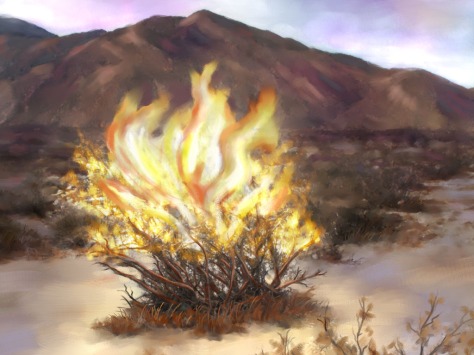 Bless the Living One, O my soul,
Bless the Living One, O my soul,
and do not forget all Their benefits—
who made known Their ways to Moses,
Their acts to the people of Israel.”
– Psalm 103
As I continue to reflect on the prayer of Psalm 103, which fleshes out in concrete ways who the One revealed to Moses in the burning bush as “Great I AM”, or literally “One who Is”, “One Who Lives”, is and how we experience Them, I find this particular claim striking: We encounter this God Who Is strikingly through flesh and blood people.
 The Psalmist says this God is made known through Moses, and also God’s acts through a community: Israel.
The Psalmist says this God is made known through Moses, and also God’s acts through a community: Israel.
This is different than a way we often imagine God being experienced: privately, in our souls. If we just go alone atop the mountain, meditate long enough, search deep within, we will find God there.
Instead, the Psalmist sees God as alive through people whom someone could point out and say “look, they are right there!”
This has significance to me in two ways.
First of all, it points toward how encounters with God really happen.
It is true that people walking off in the woods, hiking in the desert, or atop the mountain can experience the Sacred break forth into their lives, becoming revealed to them in a f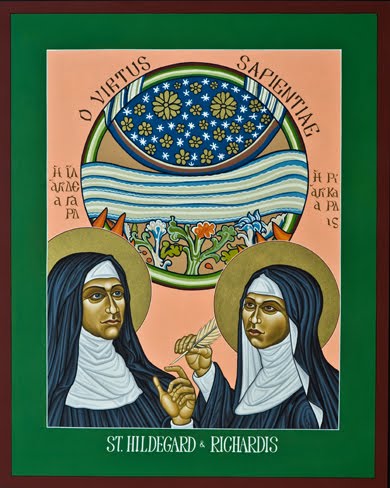 resh way. This is what is claimed, in different ways, for Moses upon Horeb, for Elijah in the cave, for Jesus at the Jordan, for Muhammad at Mecca, for Julian in Norwich, for Hildegard in Bingen. But rarely do such experiences happen in a vacuum.
resh way. This is what is claimed, in different ways, for Moses upon Horeb, for Elijah in the cave, for Jesus at the Jordan, for Muhammad at Mecca, for Julian in Norwich, for Hildegard in Bingen. But rarely do such experiences happen in a vacuum.
Moses’ experience on Horeb has some connection to his father-in-law Jethro, who is a priest in Midian, and his family who were Levites, a religious tribe among the Jews. Elijah was a prophet, yes, but the Hebrew Scriptures describe “schools of the prophets” encountered by Elijah and Elisha, which suggest prophets were not just lone visionaries but in some sense learned practices of contemplation, meditation, prayer, and even showmanship in delivering their messages to others.
Likewise Muhammad and Jesus both had experiences of revelation which revolutionized the world, but both drew on already existing stories of the Hebrew Scriptures which pointed toward how such experiences could be interpreted, and how they would be acted out.
A scholar I have a bit of a love-hate relationship with is Stanley Haerwaus, who for a long time worked at Duke Divinity School nearly in walking distance of where I live in Durham, NC. My critique of his work is often he promotes an ethical approach which leads toward language that seems to promote a withdrawal from the world and modern questions which I think is untenable for Christians in our modern world. That said, he does suggest something I deeply appreciate: moral and spiritual character does not develop in a vacuum. Instead, we learn how to develop spirituality, prayer, lives of service to others, through communities of character, spirituality, and virtue — of which, the church is the one which is his focus.
In his article “Discipleship as a Craft, Church as a Disciplined Community”, Hauerwas likens this community forming of a believer to the work of apprenticing someone in a trade. He writes,
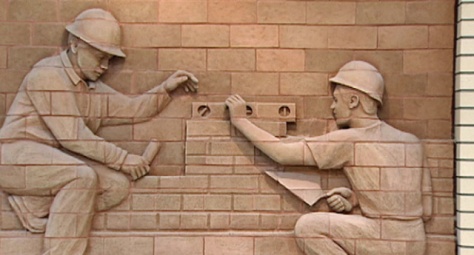 “What I propose, therefore, is to provide an account of what it means to learn a craft, to learn–for example–how to lay brick, in the hope that we may be able to claim forms of care and discipline unnoticed but nonetheless present in the church.
“What I propose, therefore, is to provide an account of what it means to learn a craft, to learn–for example–how to lay brick, in the hope that we may be able to claim forms of care and discipline unnoticed but nonetheless present in the church.
“To learn to lay brick, it is not sufficient for you to be told how to do it; you must learn to mix the mortar, build scaffolds, joint, and so on. Moreover, it is not enough to be told how to hold a trowel, how to spread mortar, or how to frog the mortar. In order to lay brick you must hour after hour, day after day, lay brick.
“Of course, learning to lay brick involves learning not only myriad skills, but also a language that forms, and is formed by those skills. Thus, for example, you have to become familiar with what a trowel is and how it is to be used, as well as mortar, which bricklayers usually call “mud.” Thus “frogging mud” means creating a trench in the mortar so that when the brick is placed in the mortar, a vacuum is created that almost makes the brick lay itself. Such language is not just incidental to becoming a bricklayer but is intrinsic to the practice. You cannot learn to lay brick without learning to talk “right.”
“The language embodies the history of the craft of bricklaying. So when you learn to be a bricklayer you are not learning a craft de novo but rather being initiated into a history. For example, bricks have different names–klinkers, etc.—to denote different qualities that make a difference about how one lays them. These differences are often discovered by apprentices being confronted with new challenges, making mistakes, and then being taught how to do the work by the more experienced.
“All of this indicates that to lay brick you must be initiated into the craft of bricklaying by a master craftsman…
“…to learn to pray is no easy matter but requires much training, not unlike learning to lay brick. It does no one any good to believe in God, at least the God we find in Jesus of Nazareth, if they have not learned to pray. To learn to pray means we must acquire humility not as something we try to do, but as commensurate with the practice of prayer. In short, we do not believe in God, become humble and then learn to pray, but in learning to pray we humbly discover we cannot do other than believe in God.

“But, of course, to learn to pray requires that we learn to pray with other Christians. It means we must learn the disciplines necessary to worship God. Worship, at least for Christians, is the activity to which all our skills are ordered. That is why there can be no separation of Christian morality from Christian worship. As Christians, our worship is our morality, for it is in worship that we find ourselves engrafted into the story of God. It is in worship that we acquire the skills to acknowledge who we are–sinners.
“This is but a reminder that we must be trained to be a sinner. To confess our sin, after all, is a theological and moral accomplishment. . . as Christians we cannot learn to confess our sins unless we are forgiven. Indeed, as has often been stressed, prior to forgiveness we cannot know we are sinners. For it is our tendency to want to be forgivers such that we remain basically in a power relation to those who we have forgiven. But it is the great message of the gospel that we will find our lives in that of Jesus only to the extent that we are capable of accepting forgiveness. But accepting forgiveness does not come easily, because it puts us out of control.
“In like manner we must learn to be a creature. To confess that we are finite is not equivalent to the recognition that we are creatures. For creaturehood draws on a determinative narrative of God as creator that requires more significant knowledge of our humanity than simply that we are finite. For both the notions of creature and sinner require that we find ourselves constituted by narratives that we did not create…”
Because of this, it is appropriate to look to others as bearers of God’s presence in our lives.
In each of our lives, there are individuals we can look to who point us to God at key points of our lives and act as masters, who model for us how to relate to God and others. Sometimes this is directly through teaching us, such as Sunday school teachers, people who train us in spiritual practices or folks who teach us who to engage in social justice. In other cases, it is people who, through our relationships with us, indirectly teach us by modeling the ways we are called to live out faith, spirituality, calling.
 In my own life I can’t help but think of a number of people.
In my own life I can’t help but think of a number of people.
My grandmother, who lived in our home through most of my childhood, was a faithful committed Baptist woman who modeled deep spirituality. She also had been a schoolteacher before becoming a mother. She learned to be a schoolteacher at the same college – East Carolina – that my mother studied to become a teacher. Just as her example inspired my mother to become a teacher, even as a child I learned from her spirituality means curiosity, openness to learning.
Some of my earliest memories were talking walks, hand in hand with her, and hearing her pass on the same facts about NC and US history she no doubt taught her students in her time as a teacher. She whetted my childlike appetite for education and, in doing so, taught me that true spirituality opens up heart, mind, and soul. It is a part of why as I continued my own spiritual journey throughout life I have remained open always to the idea we United Church of Christ folks sum up by saying “God is still speaking”: the idea that there is always more I can learn, and I do not need to fear new knowledge will lead me away from God but rather point me more fully a deeper knowledge of God, myself, others, and God’s world.
I also remember Greg Williams and Matt Crump, the pastor of the church I attended as a teenager who was deeply involved with supporting the youth of the church and the Youth For Christ youth worker who helped with a ministry reaching out to my high school. These two modeled to me an open-minded masculinity which was sensitive to other’s feelings, open about one’s own emotions, and committed to both learning and helping make the world better. Knowing them both opened me up to my first glimmers of what kind of man I wanted to be, since growing I up I had always been a sensitive, thoughtful, child but always gotten the message that wasn’t “manly” enough. Their example ultimately paved the beginning steps toward me taking the path that has led me to a life of deep spirituality and feeling as a channel for a life of compassion, commitment to justice, and care for others that I live out every day personally and also in my work as a chaplain.
I could go on, for so many individuals have shaped and touched me that there is not time to name them all.
Each of us, if we pay attention, have people whose example and relationships to us have shaped us, showing us ways we can experience and live out who God is to us and who God is calling us to be. Also, each of us if we pay attention also have the call to be those same people to others.
Ultimately this is not just about individuals, but community, for God is revealed not just to Moses but also through the community of Israel.
Our spiritual growth and the skills we are called in the spiritual life to develop which enable us to become forces of healing in this world require commitment to communities which model and challenge those skills to develop. These communities also help us, for we cannot always sustain the spiritual life all on our own.

In my own life, it is in communities such as the multicultural bilingual community, La Mesa, where I generally gather for worship that I am confronted by my own white privilege and challenged to come to terms with structural racism as well as my complicity in it. By relating to people of different cultures, classes, legal status, and language I face into my own narrow views of the world as a white, educated, middle class man, and am called to embrace a bigger view of the world.
 Also, the wider church I attend, of which La Mesa is just one part, ultimately surrounded and embraced me in the darkest time of my life so far – the sudden unexpected death of my late wife. People surrounded me, embraced me, helped me keep my footing, and made sure I was ok. I remember saying to someone during the time immediately after Katharine passed, “I go through times I can’t feel God’s presence and when I try to pray, words won’t come. But then I look, and there you folks who care for me are, and that is enough of God to get me through”.
Also, the wider church I attend, of which La Mesa is just one part, ultimately surrounded and embraced me in the darkest time of my life so far – the sudden unexpected death of my late wife. People surrounded me, embraced me, helped me keep my footing, and made sure I was ok. I remember saying to someone during the time immediately after Katharine passed, “I go through times I can’t feel God’s presence and when I try to pray, words won’t come. But then I look, and there you folks who care for me are, and that is enough of God to get me through”.
I wonder, what individuals and communities have furthered you in your spiritual journey?
Your progressive redneck preacher,
Micah
 Bless the Living One, O my soul,
Bless the Living One, O my soul, The Psalmist says this God is made known through Moses, and also God’s acts through a community: Israel.
The Psalmist says this God is made known through Moses, and also God’s acts through a community: Israel. resh way. This is what is claimed, in different ways, for Moses upon Horeb, for Elijah in the cave, for Jesus at the Jordan, for Muhammad at Mecca, for Julian in Norwich, for Hildegard in Bingen. But rarely do such experiences happen in a vacuum.
resh way. This is what is claimed, in different ways, for Moses upon Horeb, for Elijah in the cave, for Jesus at the Jordan, for Muhammad at Mecca, for Julian in Norwich, for Hildegard in Bingen. But rarely do such experiences happen in a vacuum. “What I propose, therefore, is to provide an account of what it means to learn a craft, to learn–for example–how to lay brick, in the hope that we may be able to claim forms of care and discipline unnoticed but nonetheless present in the church.
“What I propose, therefore, is to provide an account of what it means to learn a craft, to learn–for example–how to lay brick, in the hope that we may be able to claim forms of care and discipline unnoticed but nonetheless present in the church.
 In my own life I can’t help but think of a number of people.
In my own life I can’t help but think of a number of people.
 Also, the wider church I attend, of which La Mesa is just one part, ultimately surrounded and embraced me in the darkest time of my life so far – the sudden unexpected death of my late wife. People surrounded me, embraced me, helped me keep my footing, and made sure I was ok. I remember saying to someone during the time immediately after Katharine passed, “I go through times I can’t feel God’s presence and when I try to pray, words won’t come. But then I look, and there you folks who care for me are, and that is enough of God to get me through”.
Also, the wider church I attend, of which La Mesa is just one part, ultimately surrounded and embraced me in the darkest time of my life so far – the sudden unexpected death of my late wife. People surrounded me, embraced me, helped me keep my footing, and made sure I was ok. I remember saying to someone during the time immediately after Katharine passed, “I go through times I can’t feel God’s presence and when I try to pray, words won’t come. But then I look, and there you folks who care for me are, and that is enough of God to get me through”.



 The stillness speaks
The stillness speaks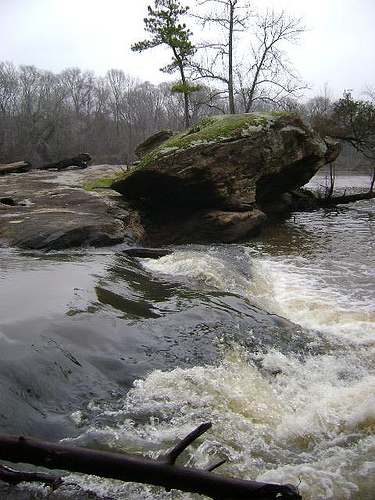 leading me up craggy cliffs
leading me up craggy cliffs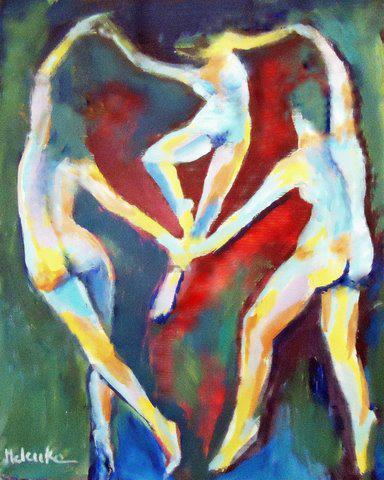 O Three-fold dancer,
O Three-fold dancer,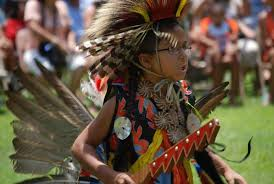 In discussing the theme of Sanctuary and how people of faith and good will can respond to the plight of immigrants and refugees, I was reminded recently by a friend in my own faith community how this call doesn’t fit into easy slogans. He shared about how, in a rally to stand in solidarity with displaced people, refugees, and immigrants, the chant “We are All Immigrants” brought heartache to an ally of this movement.
In discussing the theme of Sanctuary and how people of faith and good will can respond to the plight of immigrants and refugees, I was reminded recently by a friend in my own faith community how this call doesn’t fit into easy slogans. He shared about how, in a rally to stand in solidarity with displaced people, refugees, and immigrants, the chant “We are All Immigrants” brought heartache to an ally of this movement.

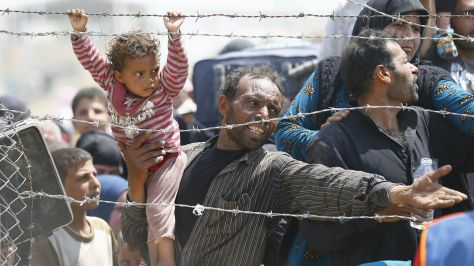 One of the disheartening lessons I have learned as I have begun to research the Sanctuary church movement and responses of people of faith to the plight of displaced people, including both undocumented immigrants and refugees, is that this is a bipartisan problem.
One of the disheartening lessons I have learned as I have begun to research the Sanctuary church movement and responses of people of faith to the plight of displaced people, including both undocumented immigrants and refugees, is that this is a bipartisan problem.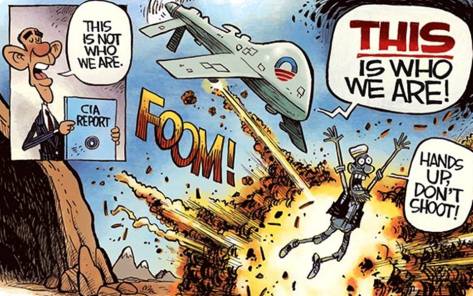

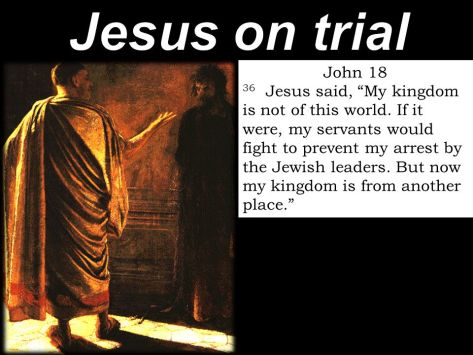
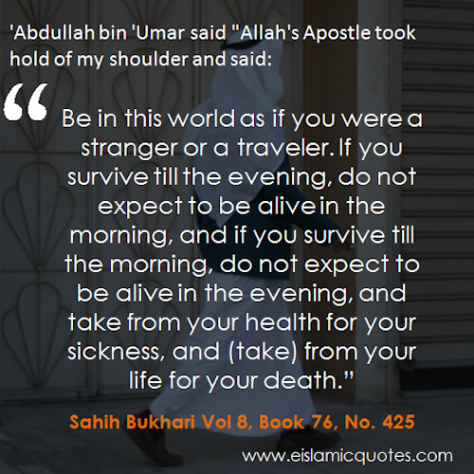
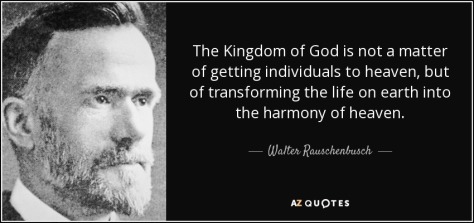
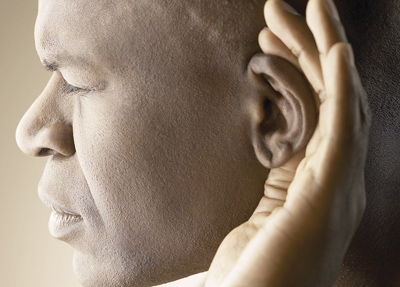
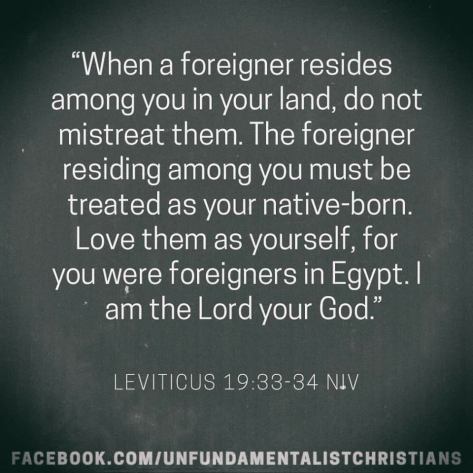
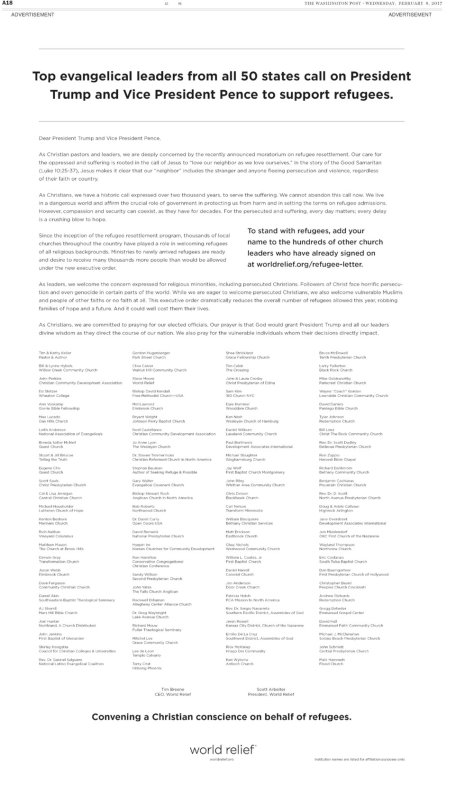



 Same goes for ACA and most of my family members, who are, remember, overall a pretty healthy lot.
Same goes for ACA and most of my family members, who are, remember, overall a pretty healthy lot.